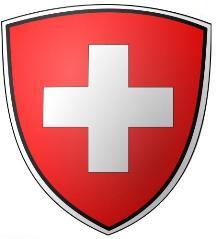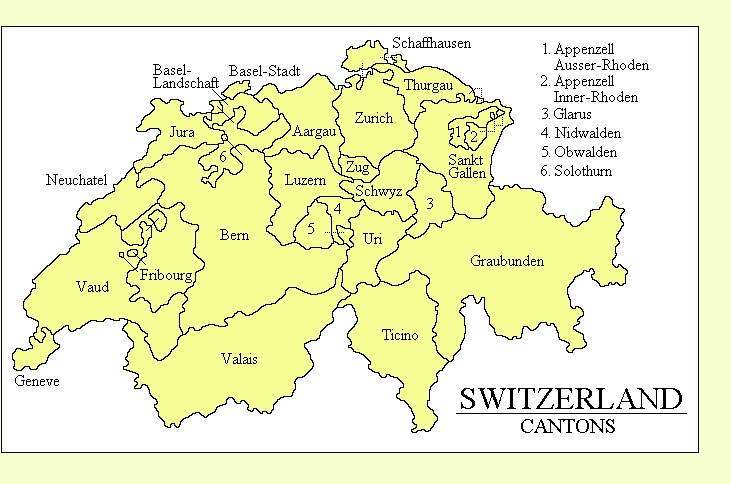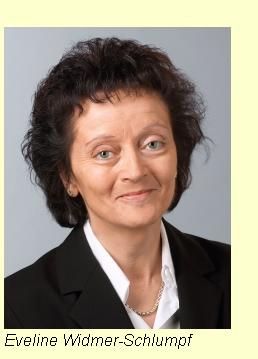

SWISS CONFEDERATION
• Official name: Confederation Suisse / Schweizerische Eidgenossenschaft /
Confederazione Svizzera / Confederaziun Svizra (Swiss Confederation). To avoid the problem of four official
languages the Latin form Confoederatio Helvetica is sometimes used.
• Location: Western Europe
• International organisations: Council of Europe, Organisation for Economic Co-operation and
Development, Organisation Internationale de la Francophonie, Organisation for Security and Co-operation in
Europe, United Nations, World Trade Organisation
• Borders: Austria, France, Germany, Italy, Liechtenstein
• Coastline: None
• Land area: 41,290 Km2
• Population: 7,800,000
• Annual GDP (PPP) per capita: US$41,700 (2009 CIA estimate). World ranking: 13
• Ethnicity: German 65%, French 18%, Italian 10%, Romansch 1%, other 6%.
• Languages: French, German and Italian are official languages. Romansch, an
indigenous Latin-based language, is also in theory an official language, but is spoken
by only 1% of the population. German is the
first language of 64%, French of 20%, and Italian of 8%. Most citizens are bilingual.
English is widely used in business and communications.
• Religion: 85% of Swiss are at least nominal Christians (Catholic 45%, Protestant
40%), but religious practice has declined greatly.
• Form of government: Federal parliamentary democratic republic. Switzerland is a
federation of 26 self-governing cantons.

• Capital: Bern
• Constitution: The
Constitution of the Swiss Federation came into effect on 29 May 1874. The Constitution
was revised in 1999, without altering its essentials.
• Head of state: The President, elected by the legislature for a one-year term.
President Eveline Widmer-Schlumpf
of the People's Party took office on 1 January 2012.
• Head of government: The President, who heads the Federal Council (the Cabinet) and
is accountable to the legislature. The members of the Cabinet are elected by the
legislature.
• Legislature: Switzerland has a bicameral legislature, the
Federal Assembly (Assemblee Federale /
Bundesversammlung / Asamblea Federale / Assemblea Federala). The National Council (Conseil National /
Nationalrat / Consiglio Nazionale / Cussegl Naziunal) has 200 members, elected for four-year terms by
proportional representation in multi-member constituencies corresponding to the
cantons. The Council of States (Conseil des Etats / Standerat / Consiglio degli Stati /
Cussegl dals Stadis) has 46 members elected for four-year terms from multi-member and single-member
constituencies.

• Electoral authority: The
Federal Chancellery conducts national elections.
• Freedom House 2009 rating: Political Rights 1, Civil Liberties 1
• Transparency International Corruption Index: 87% (8 of 178 countries rated)
• Reporters Without Borders Press Freedom 2010 Index: 82.5% (62 of 178 countries rated)
• Heritage Foundation Economic Freedom 2010 Index: 81.5% (5 of 179 countries rated)
Political history
The Swiss Federation was formed, originally by three cantons, in 1291, and
gradually expanded to include more cantons until it assumed its present boundaries in 1815.
It has been generally recognised as a sovereign state since the 17th century. Following
a brief civil war between conservative Catholics and liberal cantons, a system of federal
constitutional government was established in 1848. The 1867 constitution provided for a
federal legislature
elected by universal male suffrage. Switzerland was the last major European state to allow women to
vote, in 1971.
Switzerland has a unique system of parliamentary government. The legislature
elects a seven-member Federal Council every four years, which functions as a Cabinet. One member of
the Council is elected President each year, and is the nearest equivalent to a
Prime Minister. Government is not party-based: since 1959 the Council has included members of all the major
parties represented in the Federal Assembly.
Switzerland has a complex party system, since parties reflect the country's
linguistic and cantonal fragmentation as well as class interests. The parties in the
governing coalition are the conservative
Swiss People's Party and
Christian Democratic People's Party, the moderate
Social Democratic Party of Switzerland, and
the Liberal Party of Switzerland. Other parties
include the Green Party, the anti-immigration
Swiss Democrats, the conservative
Protestant People's Party and the radical
Swiss Labour Party. In recent elections the Swiss People's Party has
gained ground at the expense of the other coalition parties, mainly by exploiting the
immigration issue, but at the 2011 election the Swiss People's Party lost ground to the
Socialists.
Updated January 2012
|


